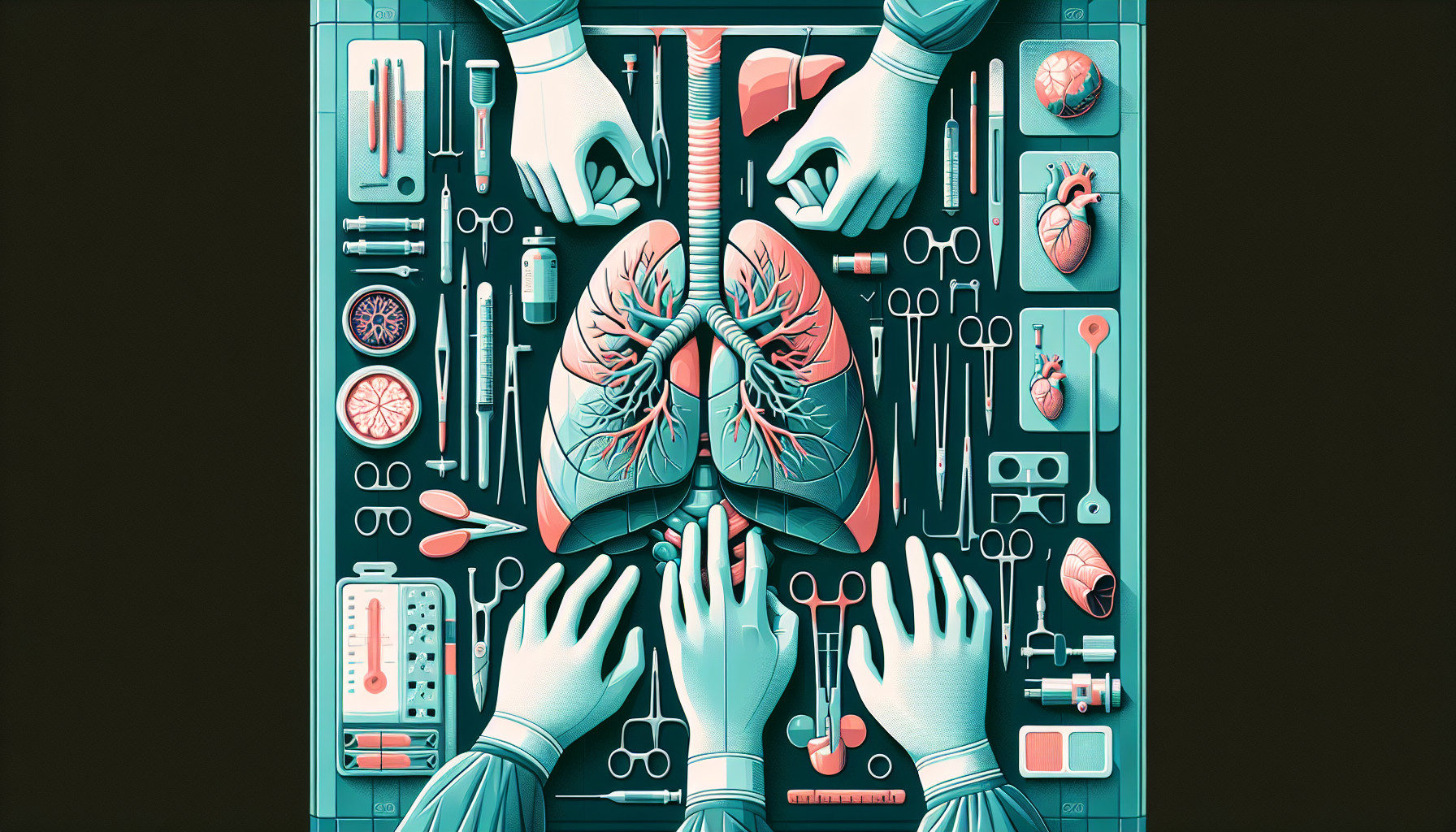Our Summary
This study looked at the impact of a new kind of lung cancer treatment called ’neoadjuvant anti-PD-1’. The researchers studied slides from lung cancer patients who had undergone surgery after receiving this treatment and compared them to slides taken before the treatment. They found that the area where the immune system had been fighting the cancer showed a lot of immune activity and signs of tumor cell death and tissue repair. This area was also smaller in size, which might explain why previous studies using CT scans had found a discrepancy in tumor size after treatment. Based on these findings, the researchers developed a new set of criteria for assessing how effective immunotherapy treatments are, called ‘Immune-Related Pathologic Response Criteria’ (irPRC). This new method was found to be more consistent and reliable than the current method used to assess tumor size. However, the researchers note that further studies are needed to confirm if this new method can predict how likely the cancer is to come back and how long patients will survive.
FAQs
- What is the neoadjuvant anti-PD-1 treatment for lung cancer?
- What are the Immune-Related Pathologic Response Criteria (irPRC) developed by the researchers based on their findings?
- Do the researchers believe the new method of assessment can predict the likelihood of cancer recurrence and patient survival time?
Doctor’s Tip
One helpful tip a doctor might give a patient about lung resection is to follow a comprehensive post-operative care plan, which may include:
- Taking prescribed medications as directed, including pain medications and antibiotics
- Following specific breathing exercises to help improve lung function and prevent pneumonia
- Attending follow-up appointments with your healthcare team to monitor your recovery progress
- Avoiding smoking and exposure to secondhand smoke to reduce the risk of complications and improve long-term outcomes
- Engaging in regular physical activity as recommended by your healthcare team to promote healing and overall well-being.
Suitable For
Patients who are typically recommended for lung resection include those with early-stage non-small cell lung cancer, lung metastases from other cancers, and certain cases of advanced lung cancer where the tumor is localized and can be safely removed. Additionally, patients who have not responded well to other treatments such as chemotherapy or radiation therapy may also be candidates for lung resection. It is important for patients to undergo a thorough evaluation by a multidisciplinary team of healthcare providers to determine if lung resection is the best treatment option for them.
Timeline
Before lung resection:
- Patient undergoes diagnostic tests such as CT scans, MRI, and biopsy to confirm the presence of lung cancer.
- Treatment plan is developed, which may include neoadjuvant anti-PD-1 therapy to shrink the tumor before surgery.
- Patient receives neoadjuvant therapy to prepare for surgery.
- Slides of the lung tissue are taken before surgery to assess the tumor and surrounding immune response.
After lung resection:
- Patient undergoes surgery to remove part or all of the lung affected by cancer.
- Slides of the removed tissue are analyzed to evaluate the effectiveness of the neoadjuvant therapy.
- Researchers develop new criteria, such as irPRC, to assess the immune response and tumor cell death in the tissue.
- Further studies are conducted to determine if the new criteria can predict cancer recurrence and patient survival rates.
What to Ask Your Doctor
- Can you explain the type of lung resection procedure I will be undergoing?
- What are the potential risks and complications associated with lung resection?
- How long is the recovery period after lung resection surgery?
- Will I need any additional treatments, such as chemotherapy or radiation therapy, after the surgery?
- What are the chances of the lung cancer coming back after the surgery?
- How will my lung function be affected after lung resection?
- Are there any lifestyle changes or precautions I should take after the surgery?
- How often will I need follow-up appointments or scans to monitor my recovery and check for any recurrence of cancer?
- Are there any clinical trials or new treatments that I should consider for my lung cancer treatment?
- Can you explain the findings of the study on the impact of neoadjuvant anti-PD-1 treatment on lung cancer patients, and how it may affect my treatment plan?
Reference
Authors: Cottrell TR, Thompson ED, Forde PM, Stein JE, Duffield AS, Anagnostou V, Rekhtman N, Anders RA, Cuda JD, Illei PB, Gabrielson E, Askin FB, Niknafs N, Smith KN, Velez MJ, Sauter JL, Isbell JM, Jones DR, Battafarano RJ, Yang SC, Danilova L, Wolchok JD, Topalian SL, Velculescu VE, Pardoll DM, Brahmer JR, Hellmann MD, Chaft JE, Cimino-Mathews A, Taube JM. Journal: Ann Oncol. 2018 Aug 1;29(8):1853-1860. doi: 10.1093/annonc/mdy218. PMID: 29982279
